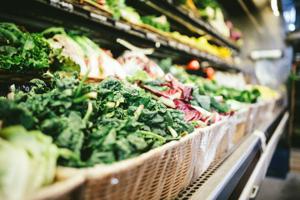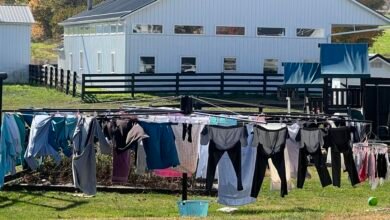FoodShare has higher enrollment than before pandemic | Wisconsin


(The Center Square) – More people are enrolled in FoodShare in Wisconsin than before the COVID-19 era began in 2020.
The findings, released June 28, are in a report from research by the Wisconsin Policy Forum.
“Though the COVID-19 crisis has faded and Wisconsin’s unemployment rate has fallen to prepandemic levels, the number of people receiving the benefits formerly known as food stamps remains elevated and currently shows little sign of dropping back to its prepandemic count,” the report states. “As of March 2024, data from the state Department of Health Services show Wisconsin’s FoodShare program totaled 702,700 recipients. That was well below the most recent peak of 793,300 participants in May 2021 but still 99,000 (16%) more than in March 2020, which was the last month with recipient levels not impacted by the pandemic.”
Most of America, and with it the world, came to a halt on or about Thursday and Friday, March 12-13, 2020. A message of “two weeks to slow the curve” grew into multiple years, with setbacks to the economy and education criticized as much as any.
Wisconsin’s 6 million population has 11% – 702,700 – enrolled in FoodShare. The majority is in the biggest city and poorest communities.
“In March 2024, FoodShare enrollment remained at least 20% higher in 43 of the state’s 72 counties compared to March 2020,” the report says. “Twenty-three additional counties saw increases of at least 10%. Three of the eleven federally recognized tribes located in Wisconsin also experienced program participation increases of at least 20% over that same time frame. As of March 2024, Sheboygan (30%), Milwaukee (26%) and Shawano (26%) counties had the highest FoodShare participation rates in Wisconsin.”
The report adds that four of Wisconsin’s tribes had participation rates of at least 25%, and one over 50%.
The report says the continued dependence on FoodShare may be caused by inflation and high food prices, but is mostly caused by pandemic-era eligibility expansions.
The report says, “Significant changes included exemptions to the FoodShare requirement that nondisabled adults ages 18 to 49 without dependents work, take part in a work program, volunteer, or provide community service for at least 80 hours a month to qualify. Other changes included more streamlined application and renewal processes; student eligibility exemptions; and suspension of the drug testing requirement for certain persons convicted of a drug felony in the past five years.”
Some of those changes have been rolled back, but there remains a work requirement exemption for Milwaukee, Racine, and other high FoodShare-enrollee communities.
Wisconsin is spending nearly twice what it spent on FoodShare in 2020.
“Total FoodShare benefit payments in Wisconsin have fallen since their $193.8 million peak in December 2022, yet they remain higher than prepandemic levels,” the authors noted. “The $113.1 million in benefit payments in March 2024 exceeded the March 2020 total by $47.8 million.”
The report doesn’t offer any conclusions or suggestions as to what policymakers can do to change the trend.
“For now at least, greater reliance on FoodShare for many Wisconsin residents appears to be the new normal,” the report said.
Source link



